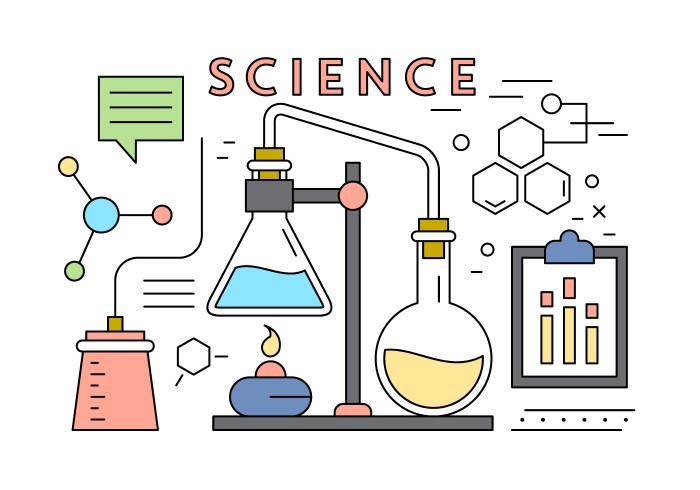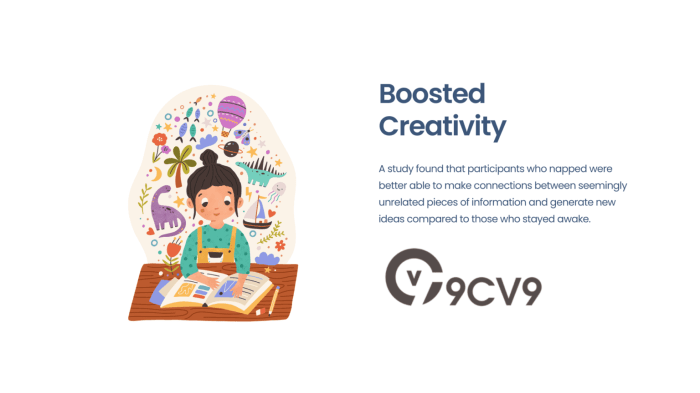Science explains why early birds have better mental health than night owls. This fascinating exploration delves into the science behind sleep patterns and their impact on our well-being. We’ll examine the biological mechanisms driving our sleep-wake cycles, the crucial link between sleep and mental health, and potential factors contributing to the differences in mental health outcomes between early risers and night owls.
Prepare to uncover the secrets of a good night’s sleep and how it shapes our inner world.
The study of sleep patterns and mental health is a growing field, and this article aims to provide a clear and concise overview of the current understanding. We’ll cover the definition of “early bird” and “night owl,” the biological processes regulating sleep, the correlation between sleep and mental well-being, and potential contributing factors. Ultimately, we’ll explore the practical implications of this knowledge and offer insights into optimizing sleep habits for improved mental health.
Defining “Early Birds” and “Night Owls”
Understanding the differences between early birds and night owls goes beyond simple personality traits. It delves into the science of chronobiology, which explores our internal biological clocks and how they influence our sleep-wake cycles. These cycles, while largely genetic, can be influenced by various factors like age, lifestyle, and environmental cues.Sleep patterns are not a monolithic category; they exist on a spectrum.
Categorizing individuals as “early birds” or “night owls” simplifies a complex reality, but it’s a useful framework for understanding how our natural rhythms affect our well-being. This framework helps us appreciate the diversity of human sleep-wake cycles and the potential impact on mental health and overall performance.
Defining Sleep Patterns
Sleep patterns are measured and categorized through various methods, each with its own strengths and limitations. Polysomnography (PSG) is a comprehensive sleep study that tracks brain waves, eye movements, and muscle activity during sleep. This detailed analysis provides valuable insights into sleep stages and disturbances. Actigraphy, on the other hand, uses a small, wearable device to monitor physical activity levels throughout the day and night.
This method can indirectly assess sleep-wake patterns by tracking periods of inactivity, which are often correlated with sleep. Self-reported questionnaires and diaries also play a crucial role, providing insights into subjective sleep experiences, sleep quality, and sleep schedules.
Comparison of Sleep Schedules
The following table illustrates the typical sleep-wake schedules of early birds and night owls, highlighting the key differences:
| Characteristic | Early Bird | Night Owl |
|---|---|---|
| Typical Wake-up Time | 7:00 AM – 8:00 AM | 10:00 AM – 11:00 AM |
| Typical Sleep Onset | 10:00 PM – 11:00 PM | 1:00 AM – 2:00 AM |
| Optimal Performance Time | Morning hours | Evening and night hours |
| Preferred Work Schedule | Shift work that starts early | Shift work that starts late or evening hours |
| Natural Circadian Rhythm | Aimed at earlier sleep and wake times | Aimed at later sleep and wake times |
Note: These are general guidelines. Individual variations within each category are significant. Furthermore, factors like jet lag, illness, and lifestyle changes can temporarily affect sleep patterns.
Biological Mechanisms Underlying Sleep
Understanding the biological underpinnings of sleep is crucial to comprehending the disparities in mental well-being between early birds and night owls. Our sleep-wake cycles are intricately linked to our overall health and are influenced by a complex interplay of biological processes. This intricate dance of hormones and neurotransmitters, orchestrated by our internal clocks, dictates when we feel sleepy and when we’re ready to be active.The biological mechanisms governing sleep are not a simple on-off switch, but rather a delicate balance between promoting wakefulness and initiating sleep.
This delicate regulation is essential for maintaining optimal cognitive function and emotional stability throughout the day.
Circadian Rhythms and Sleep
Our internal biological clock, known as the circadian rhythm, plays a pivotal role in regulating our sleep-wake cycles. This 24-hour cycle is driven by a master clock located in the hypothalamus, a region of the brain. This internal clock synchronizes with environmental cues like sunlight and darkness, influencing our sleep patterns and alertness levels. The consistency of these cycles is essential for maintaining overall health.
Key Hormones and Neurotransmitters in Sleep Regulation
Various hormones and neurotransmitters orchestrate the transition between wakefulness and sleep. Their precise interplay is critical for a smooth and restorative sleep experience.
| Hormone/Neurotransmitter | Role in Sleep |
|---|---|
| Melatonin | A hormone primarily responsible for inducing sleep. Its secretion is strongly influenced by darkness, signaling the body to prepare for rest. |
| Cortisol | A hormone that promotes wakefulness and alertness. Its levels typically peak in the morning, preparing us for the day. |
| Adenosine | A neurotransmitter that builds up throughout the day, increasing sleep pressure. As adenosine levels rise, the urge to sleep intensifies. |
| Norepinephrine | A neurotransmitter that promotes alertness and arousal. Its presence is high during wakefulness and helps maintain wakefulness. |
| Serotonin | Plays a role in regulating sleep-wake cycles and mood. Serotonin levels can influence sleep quality and the duration of sleep. |
| Growth Hormone | Secreted during deep sleep, essential for tissue repair and growth, particularly important for children and adolescents. |
Genetic Influence on Sleep Patterns
Genetic predisposition significantly impacts individual sleep patterns. Studies have shown that certain genes influence the timing and duration of sleep. For instance, variations in genes associated with circadian rhythm regulation can lead to differences in sleep preferences, making some individuals naturally inclined towards being early risers or night owls. This genetic influence on sleep patterns highlights the complexity of the sleep-wake cycle.
Individual genetic predispositions explain why some people naturally wake up early while others stay up late.
The Link Between Sleep and Mental Health

Sleep is far more than just a time for rest; it’s a fundamental pillar of our overall well-being, profoundly impacting our mental health. The quality and quantity of sleep directly correlate with our mood, cognitive function, and emotional resilience. Understanding this intricate connection is crucial for fostering mental well-being and recognizing the potential consequences of sleep deprivation.Sleep deprivation, a pervasive issue in modern life, wreaks havoc on our mental state.
The effects are multifaceted, impacting our ability to cope with stress, maintain focus, and regulate our emotions. Chronic sleep loss can lead to irritability, anxiety, and even depression, highlighting the critical importance of prioritizing sufficient sleep.
The Impact of Sleep on Mood
Adequate sleep plays a vital role in emotional regulation, allowing the brain to process and consolidate emotional experiences. Sleep deprivation can disrupt this process, leading to heightened emotional reactivity and a greater susceptibility to mood swings and irritability. Lack of sleep can also increase the risk of developing or exacerbating existing mental health conditions. For example, individuals experiencing chronic sleep loss often report feeling more anxious and vulnerable to negative emotions.
Sleep’s Influence on Cognitive Function
Sufficient sleep is essential for optimal cognitive function. Sleep allows the brain to consolidate memories, process information, and maintain focus. Conversely, sleep deprivation impairs attention, concentration, and problem-solving abilities. This impairment can negatively affect academic performance, professional productivity, and overall daily functioning. For instance, students who consistently experience sleep deprivation may struggle with learning and retaining information in the classroom.
Science is showing that early risers often enjoy better mental well-being than night owls. This likely ties into the common experience of recognizing lack of sleep signs, like irritability and difficulty concentrating. Understanding these signs is crucial because consistent poor sleep can impact mood and overall mental health, further highlighting why those who naturally wake earlier tend to fare better.
This isn’t to say night owls are doomed, but understanding the science behind the connection between sleep patterns and mental health is important for everyone. Check out this guide on lack of sleep signs for more details.
The Relationship Between Sleep and Stress Levels
Sleep plays a crucial role in the body’s stress response system. A good night’s sleep helps the body repair and restore itself, reducing stress hormones and improving resilience. Conversely, chronic sleep loss can elevate stress levels, making individuals more vulnerable to stress-related illnesses and mental health challenges. For instance, individuals who consistently experience sleep deprivation often report feeling more stressed and overwhelmed by daily tasks.
Sleep and Emotional Regulation
Adequate sleep is critical for regulating emotions. During sleep, the brain processes and consolidates emotional experiences, promoting emotional balance and stability. Conversely, insufficient sleep can disrupt this process, leading to heightened emotional reactivity and difficulty in managing stress. This disruption can manifest as increased irritability, anger, and a reduced ability to cope with stressful situations. Consider the example of a parent who has not slept well; they might experience increased frustration and difficulty managing their children’s behavior.
Sleep and Mental Health Conditions
Sleep plays a vital role in maintaining good mental health, and poor sleep can exacerbate or trigger various mental health conditions. Insufficient sleep is linked to an increased risk of anxiety disorders, depression, and other mental health issues. It’s important to note that sleep disorders can also be a symptom of underlying mental health problems, further highlighting the interconnectedness of sleep and mental health.
For instance, individuals with depression often report difficulties falling asleep or staying asleep, illustrating a reciprocal relationship.
Potential Factors Contributing to Differences: Science Explains Why Early Birds Have Better Mental Health Than Night Owls
The disparity in sleep patterns between early birds and night owls isn’t solely determined by our internal biological clocks. Environmental factors, lifestyle choices, and cultural influences all play a significant role in shaping our sleep-wake cycles and, consequently, our mental well-being. Understanding these external forces can help us appreciate the complexity of this phenomenon and potentially tailor strategies to optimize our sleep and mental health.
Environmental Factors Influencing Sleep Patterns
Environmental factors like light exposure, temperature, and noise levels can significantly impact our sleep-wake cycles. Bright sunlight signals the body to reduce melatonin production, a hormone crucial for sleep. Conversely, darkness triggers melatonin release, promoting sleepiness. Different geographical locations experience varying light cycles throughout the year, impacting sleep patterns. For example, people living in high-latitude regions during winter experience shorter daylight hours and more darkness, potentially leading to more pronounced sleep-wake cycle variations.
Similarly, noise pollution can disrupt sleep, making it harder to fall asleep and stay asleep, irrespective of chronotype. Consistent exposure to noise may influence the sleep patterns of individuals who are predisposed to either early bird or night owl chronotypes.
Lifestyle Choices and Sleep Habits
Lifestyle choices exert a profound influence on sleep patterns. Regularity in sleep schedules, even on weekends, is paramount for maintaining a consistent sleep-wake cycle. Maintaining a consistent sleep schedule helps regulate the body’s natural sleep-wake rhythm. A balanced diet, including adequate hydration and nutrition, is also essential for promoting restful sleep. Conversely, irregular sleep schedules, excessive caffeine or alcohol intake, and a poor diet can significantly disrupt sleep patterns.
Moreover, physical activity can positively impact sleep quality, provided it’s not performed too close to bedtime.
Science reveals that early risers often enjoy better mental well-being than night owls. This aligns with the importance of healthy routines, which can significantly impact relationships. For couples seeking to strengthen their bond, exploring exercises like those found in “7 powerful exercises for couples build mutual trust” 7 powerful exercises for couples build mutual trust can foster deeper understanding and trust.
Ultimately, prioritizing consistent sleep patterns, as research shows, contributes to improved mental health for individuals, potentially reflecting positively on relationship dynamics.
Social and Cultural Influences on Sleep
Social and cultural norms play a crucial role in shaping our sleep habits. Different cultures have varying expectations and attitudes towards sleep. In some cultures, nighttime is considered a time for social interaction, which can lead to later bedtimes and reduced sleep duration. Furthermore, societal pressures, such as work schedules and social obligations, can lead to inconsistent sleep patterns.
For example, individuals in professions with irregular hours, like doctors or emergency personnel, may experience greater difficulty in maintaining consistent sleep schedules, which can impact their mental well-being.
Summary Table of Potential Factors Affecting Sleep Patterns and Mental Health
| Factor Category | Specific Factor | Potential Impact on Sleep Patterns | Potential Impact on Mental Health |
|---|---|---|---|
| Environmental Factors | Light Exposure | Disrupts melatonin production, leading to difficulty falling asleep or staying asleep | Increased risk of mood disorders, anxiety, and decreased cognitive function |
| Temperature | Extreme temperatures can hinder sleep quality | Discomfort and reduced sleep efficiency, potentially leading to irritability and fatigue | |
| Noise Pollution | Interrupts sleep, making it harder to fall asleep and stay asleep | Increased stress, anxiety, and difficulty concentrating | |
| Lifestyle Choices | Irregular Sleep Schedules | Disrupts the body’s natural sleep-wake cycle | Increased risk of mood disorders, fatigue, and reduced cognitive performance |
| Diet | Poor diet, inadequate hydration, and excessive caffeine or alcohol intake | Reduced sleep quality and increased risk of various health issues | |
| Physical Activity | Intense exercise close to bedtime can interfere with sleep | Potential for increased stress and reduced sleep quality | |
| Social & Cultural Influences | Cultural Norms | Varying expectations and attitudes towards sleep, leading to differing sleep schedules | Potential for increased stress and social isolation |
| Societal Pressures | Work schedules, social obligations, and other responsibilities | Disrupted sleep patterns, potentially impacting mental health |
Investigating the Impact on Mental Health Outcomes
Understanding the link between chronotype (early bird or night owl) and mental well-being is crucial for developing personalized strategies to promote mental health. This exploration delves into the potential differences in mental health outcomes between these two groups, the methodologies used to study them, and important considerations for future research.
Potential Mental Health Differences
Early birds and night owls may experience varying levels of stress, anxiety, and mood disorders due to the interplay of their chronotype with social demands and personal routines. Studies suggest that individuals who are “night owls” may be more susceptible to symptoms of depression and anxiety, potentially stemming from disrupted sleep patterns and social misalignment. Conversely, “early birds” might experience less stress from mismatched schedules but could face challenges if their preferred wake-up time doesn’t align with their work or social obligations.
These differences are not absolute, as individual experiences and other factors influence mental health.
Science reveals that early risers often enjoy better mental well-being than night owls, but understanding your personal sleep cycle is key. For example, if you find yourself nodding off on the couch but lying awake in bed, it might be a sign that you’re not respecting your natural sleep cycle. This article delves into the importance of aligning your sleep schedule with your body’s rhythm, which ultimately affects your mood and overall mental health.
So, while early birds might have an advantage, the science behind better mental health often hinges on consistent sleep patterns, regardless of your natural chronotype.
Methodology of Studying Sleep Patterns and Mental Health
Investigating the relationship between sleep patterns and mental health requires careful methodology. Researchers utilize various techniques to measure sleep patterns, including sleep diaries, actigraphy (measuring movement patterns to estimate sleep), and polysomnography (a comprehensive sleep study in a laboratory). These methods, combined with validated questionnaires to assess mental health (e.g., PHQ-9 for depression, GAD-7 for anxiety), help establish correlations between sleep characteristics and mental health indicators.
Factors to Consider in Designing a Study
Designing a robust study requires careful consideration of several factors. The sample size needs to be substantial enough to account for individual variability and potential confounding factors. Confounding factors like age, gender, socioeconomic status, and lifestyle choices (diet, exercise, substance use) should be controlled for or accounted for statistically to isolate the impact of chronotype. The study should also consider the impact of social jet lag, which is the difference between a person’s natural sleep-wake cycle and their social schedule, and how it affects mental health.
Cultural norms and societal expectations regarding sleep and wake times should also be taken into account.
Examples of Research Studies, Science explains why early birds have better mental health than night owls
Numerous studies have explored the link between sleep patterns and mental health outcomes. One notable example is a study published in the Journal of Affective Disorders that examined the relationship between chronotype and symptoms of depression and anxiety in a large sample of young adults. The researchers found a statistically significant association between later chronotypes and increased risk of depression and anxiety symptoms.
Another study, published in the journal Sleep, investigated the impact of social jet lag on mood and stress levels in shift workers, demonstrating the detrimental effect of mismatched sleep-wake schedules on mental health.
Important Considerations for Future Research
Future research should focus on exploring the underlying biological mechanisms connecting chronotype, sleep patterns, and mental health outcomes. Longitudinal studies, which follow individuals over time, would provide a more comprehensive understanding of how these factors interact and evolve. Further research is needed to understand the specific biological markers and neurochemical pathways associated with chronotype-related mental health differences. Developing targeted interventions to address sleep issues in individuals with different chronotypes is a promising area for future research.
This could include personalized sleep hygiene recommendations, tailored light exposure schedules, and cognitive behavioral therapies.
Potential Mechanisms for the Observed Differences
The observed link between early bird chronotypes and better mental well-being hints at intricate interplay between biological rhythms, stress responses, and psychological factors. Understanding these underlying mechanisms is crucial to developing targeted interventions that promote mental health in individuals with varying sleep patterns. Different sleep-wake cycles likely impact how individuals process information, regulate emotions, and respond to stressors.The relationship between sleep and mental health is multifaceted and not fully understood, but emerging research suggests that consistent sleep disruption can have significant implications for psychological well-being.
This intricate relationship likely involves a complex interplay of neurological, physiological, and psychological processes.
Neurological and Psychological Factors
Differences in brain activity patterns during wakefulness and sleep between early birds and night owls could contribute to the observed mental health disparities. Early birds may exhibit more efficient information processing and emotional regulation due to alignment with their internal clocks and societal schedules. This alignment could translate to better coping mechanisms and resilience in the face of stressors.
Night owls, on the other hand, might experience greater difficulty in adjusting to typical work or school schedules, leading to potential feelings of social isolation or disconnection.
Physiological Processes Involved
Several physiological processes are likely influenced by sleep-wake cycles, potentially impacting mental health. The body’s natural circadian rhythm, governed by the suprachiasmatic nucleus (SCN), dictates various bodily functions, including hormone production, body temperature regulation, and metabolic processes. Misalignment between these rhythms and external schedules could disrupt these processes, leading to heightened stress responses and potentially impacting mental well-being.
Impact of Cortisol Levels and Other Stress Hormones
Cortisol, a stress hormone, plays a critical role in the body’s response to perceived threats. Chronic stress and inadequate sleep can lead to elevated cortisol levels, potentially contributing to anxiety, depression, and other mental health concerns. Individuals with early bird chronotypes, who may more effectively adhere to social schedules, might experience less stress-induced cortisol fluctuations, thereby contributing to better mental health.
Night owls, on the other hand, may experience greater stress and cortisol spikes if their sleep-wake cycles are not aligned with social schedules.
Potential Pathways Linking Sleep Patterns and Mental Health
| Sleep Pattern | Potential Physiological Processes | Potential Impact on Mental Health |
|---|---|---|
| Early Bird | Stronger alignment with circadian rhythm, potentially leading to reduced cortisol fluctuations, improved mood regulation, and enhanced cognitive function. | Lower risk of anxiety, depression, and other mental health disorders; better stress management. |
| Night Owl | Potential misalignment with circadian rhythm, leading to increased cortisol levels, difficulty regulating mood, and compromised cognitive performance. | Increased risk of anxiety, depression, and other mental health disorders; greater susceptibility to stress. |
Practical Implications and Recommendations
Understanding the link between sleep patterns and mental well-being is crucial for optimizing our lives. Recognizing that early birds and night owls may experience different challenges related to sleep and mental health empowers us to tailor our strategies for optimal health. This section provides actionable steps to improve sleep habits, manage sleep disorders, and find a sleep schedule that best suits individual needs.Adopting a proactive approach to sleep hygiene and addressing any sleep disorders can significantly enhance overall well-being.
This involves not only understanding the biological mechanisms but also implementing practical strategies to create a conducive sleep environment and develop healthy sleep habits.
Optimizing Sleep Habits
Establishing consistent sleep schedules is a fundamental aspect of good sleep hygiene. Regularity in sleep timing, even on weekends, helps regulate the body’s natural sleep-wake cycle, known as the circadian rhythm. This consistency reinforces the body’s internal clock, leading to improved sleep quality and duration. Gradually adjusting bedtime and wake-up times can help individuals transition to a new sleep schedule.
Consistency is key.
Managing Sleep Disorders
Various sleep disorders, including insomnia, sleep apnea, and restless legs syndrome, can significantly impact mental health. Seeking professional help from a healthcare provider is crucial for diagnosis and management. They can recommend appropriate therapies, such as cognitive behavioral therapy for insomnia (CBT-I), medication, or other interventions. Understanding and addressing these disorders is essential for improving sleep quality and mental well-being.
Finding a Sleep Schedule Aligned with Individual Needs
Individual differences in chronotypes (early birds versus night owls) necessitate personalized sleep schedules. While consistency is important, flexibility within reasonable boundaries can be beneficial. For instance, an early bird might prioritize early bedtimes and early wake-up times, while a night owl might adjust their schedule to allow for later bedtimes and wake-up times. The goal is to find a schedule that allows for sufficient sleep and supports optimal daytime functioning.
Tips for Improving Sleep Hygiene
| Tip | Explanation |
|---|---|
| Establish a regular sleep schedule | Going to bed and waking up around the same time each day, even on weekends, helps regulate your body’s natural sleep-wake cycle. |
| Create a relaxing bedtime routine | Engage in calming activities like reading, taking a warm bath, or listening to soothing music to signal your body that it’s time to sleep. |
| Optimize your sleep environment | Ensure your bedroom is dark, quiet, and cool. Use blackout curtains, earplugs, or a white noise machine if needed. |
| Limit screen time before bed | The blue light emitted from electronic devices can interfere with melatonin production, making it harder to fall asleep. |
| Avoid large meals and caffeine before bed | These can disrupt sleep patterns. |
| Get regular exercise | Physical activity is beneficial for overall health, but avoid strenuous workouts close to bedtime. |
| Limit daytime naps | Long daytime naps can interfere with nighttime sleep. |
| See a doctor if you have persistent sleep problems | If you experience chronic sleep difficulties, consult a healthcare professional for diagnosis and treatment. |
Illustrative Case Studies
Understanding the nuances of sleep patterns and their impact on mental health requires exploring real-world examples. These case studies, though hypothetical, illustrate how different chronotypes can affect daily functioning and well-being. By examining the experiences of early birds and night owls, we can gain a deeper insight into the potential contributing factors.
Hypothetical Patient Profiles
These hypothetical profiles showcase the contrasting sleep patterns and potential mental health implications for individuals with different chronotypes.
Early Bird (Emily): Emily is a highly productive marketing executive. She wakes up naturally at 6:00 am, feeling energized and ready to tackle the day. She thrives on early mornings, fitting in exercise and work before the workday rush. Her sleep schedule typically involves going to bed by 10:00 pm, maintaining a consistent sleep duration of 7-8 hours. Emily reports feeling well-rested and focused throughout the day, rarely experiencing symptoms of stress or anxiety.
Her routine allows for a consistent and productive work schedule.
Night Owl (David): David is a freelance graphic designer. He finds his peak creativity in the late hours of the night, often working until 2:00 am. He typically goes to bed around midnight and wakes up naturally between 9:00 am and 10:00 am. David reports feeling less productive and more irritable in the morning hours, often experiencing difficulty focusing and completing tasks in the early morning.
His sleep schedule is often irregular and inconsistent, potentially impacting his energy levels and mood throughout the day.
Career Choice Implications
Sleep patterns can significantly influence career choices. Early birds often excel in roles requiring early mornings, such as customer service representatives, teachers, or those in fields requiring consistent, early-morning attendance. Night owls, on the other hand, might find success in fields that allow for flexibility, such as writing, graphic design, or customer support roles that accommodate late-night work hours.
However, career choices shouldn’t be limited by chronotype; individuals can learn to adapt and optimize their schedules to accommodate their natural tendencies.
Comparison of Mental Health Profiles
| Characteristic | Early Bird | Night Owl |
|---|---|---|
| Morning Energy Levels | High | Low |
| Evening Energy Levels | Low | High |
| Sleep Quality | Often good | May experience some disruptions |
| Stress Levels | Generally lower | May experience higher stress levels |
| Mood | Generally positive and stable | Mood swings possible |
| Focus and Concentration | Stronger focus | May experience difficulty concentrating |
| Optimal Work Hours | Early morning | Late night |
Epilogue

In conclusion, while the science behind sleep patterns and mental health is complex, the emerging research suggests a strong correlation between consistent sleep and improved mental well-being. Understanding the differences between early birds and night owls, and the potential factors influencing sleep patterns, allows us to tailor strategies for optimizing sleep habits and promoting mental health. Ultimately, the key takeaway is that prioritizing sleep, regardless of your natural inclination, can significantly impact your mental health positively.







